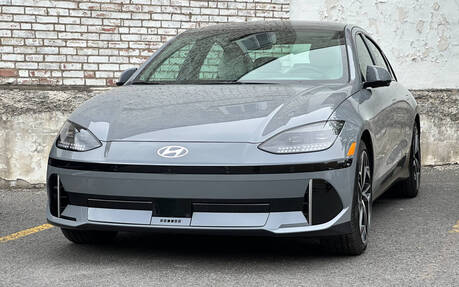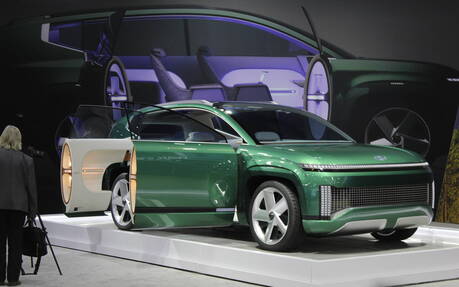Hyundai Keeps EV Plans on Track, Confirms Electrified Pickup
Hyundai Motor, which also includes sister company Kia and luxury brand Genesis, this week posted a record operating profit in the third quarter of 2023. That strong performance came with more good news as the automaker is keeping its EV plans right on track.
Unlike Ford and General Motors, which have decided to halt or push back certain EV models and battery plants due to the current challenging situation and a cooling demand, the Korean giant is finding itself in a good enough spot not to envision lowering its production targets.
- Also: Guess Where Hyundai Plans to Launch a $25K Small Electric Car
- Also: Hyundai Seven Concept Hints at Future IONIQ 7 Electric SUV
Hyundai, Kia and Genesis have collectively sold around 169,000 electrified vehicles globally so far in 2023, up 33 percent from last year, and they expect to launch as many as 31 new EV models by 2030, at which point 3.64 million units will roll off its various plants.

“We do not plan to dramatically reduce EV production or our line-up due to likely near-term hurdles as we believe EV sales will grow longer term,” Hyundai Motor’s Vice President and Chief Financial Officer Seo Gang Hyun said at the company’s earnings briefing, per Reuters.
Ultimately, Hyundai wants to become one of the world’s top three electric car manufacturers. The next EVs slated to hit the road in Canada are the Kia EV9 (late fall 2023) and the redesigned Hyundai Kona Electric (early 2024). The three-row Hyundai IONIQ 7, which is closely tied to the EV9, is due in 2025 and will be built in the U.S.

By the way, the popular IONIQ 5 crossover has seen its prices increase by $2,000 for the 2024 model year. Those of the IONIQ 6 sedan are basically unchanged.
In related news, Hyundai’s Australian division has just confirmed that an electrified pickup will launch down under sometime in 2024, though without specifying if it will be a hybrid or fully electric model. More details will be shared next year. Could we see such a vehicle in North America? It’s certainly a possibility.
